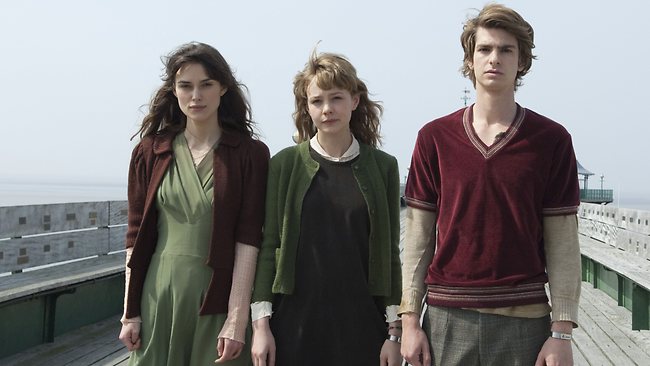
Tuesday
I see there is a glimmer of hope in the United Kingdom (albeit a very tiny one) as Labor Party leader Jeremy Corbyn has dropped his opposition to a second referendum on Brexit, even though he himself supposedly wants out. This means that a possibility at least exists that Brits can reverse their catastrophic, Russian-influenced decision to leave the European Union and thereby save their country.
Up to this point, I had the sense that Brits were like the students in Kazuo Ishiguro’s novel Never Let Me Go (2005). I’ll explain how in a moment but must first must issue a spoiler alert. More than most novels, this one reads best if you have no advance warning about its plot.
I realize that reversing the 2016 Brexit referendum vote is still a long shot. New York Times columnist Roger Cohen sees it as only the fourth most likely possibility, following (1) a readjusted Theresa May proposal (the first failed by an historically lopsided Parliamentary vote), (2) a deadline extension, and (3) no deal whatsoever (known as a “hard Brexit”).
When I wrote about the situation this past December, I invoked George Meredith’s Ordeal of Richard Feverel, in which a father’s pride proves so intransigeant that he destroys his son and daughter-in-law, even though he could save everyone by softening his stance. Think of him as the hardest of the hard Brexiteers.
Earlier (January 2017) I applied Ishiguro’s novel Buried Giant (2015) to England’s fracturing and its state of denial. And I reported on an article arguing that Remains of the Day (1989) captures the spirit of Thatcherism so well that it essentially predicted Brexit. Never Let Me Go, however, may be the most relevant to the current situation.
The novel is a science fiction story about clones who are raised so that they can serve as organ donors. We don’t learn this until fairly late in the book, however. Instead, we see them as pupils in what at first appears a normal boarding school. Only after Ishiguro drops enough hints do we figure out that (1) the characters are clones, (2) that they have been created in order to be exploited and (3) they don’t live past their third organ donation, if that long. In other words, characters that we come to care are treated as natural resources and are slated to die relatively young.
Yet they never protest, which is how they resemble a significant portion of the current British electorate. Fatalistically, they accept the parameters that have been set for them and that’s all there is to it. Like the butler Stevens in Remains of the Day, they leave the running of society to others, even though they suffer for it.
Actually, we witness a couple of moments of resistance. Two of the pupils track down the headmistress of their school—this after they have begun to donate organs–and learn about the environment in which they were raised. They discover they were privileged clones, albeit clones none the less. The narrator has the following interchange with the headmistress:
“I can see,” Miss Emily said, “that it might look as though you were simply pawns in a game. It can certainly be looked at like that. But think of it. You were lucky pawns. There was a certain climate and now it’s gone. You have to accept that sometimes that’s how things happen in the world. People’s opinions, their feelings, they go one way, then the other. It just so happens you grew up at a certain point in this process.”
“It might be just some trend that came and went,” I said. “But for us, it’s our life.”
Shortly afterwards as they drive home, Billy erupts and runs off into a forest and starts yelling. Other than those momentary assertions of self, however, passive surrender is the order of the day.
In Ursula K. Le Guin’s “Nine Lives” (1969), a short story about clones which I’m now thinking may have influenced or even inspired Never Let Me Go, the author makes a fascinating observation that helps explain their surrender. The passage is about how different cultures respond to apocalyptic crisis:
The United Kingdom had come through the Great Famines well, losing less than half its population: a record achieved by rigorous food control. Black marketeers and hoarders had been executed. Crumbs had been shared. Where in richer lands most had died and a few had thriven, in Britain fewer died and none throve. They all got lean. Their sons were lean, their grandsons lean, small, brittle-boned, easily infected. When civilization became a matter of standing in lines, the British had kept queue, and so had replaced the survival of the fittest with the survival of the fair-minded.
Is there a fatalistic acceptance of Brexit because people figure they’ll survive, even though they don’t know how? That’s certainly a powerful coping mechanism. But why simply cope when there’s something you can do?

